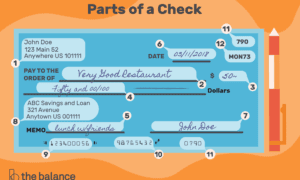If we are being honest, hiring top talent today isn’t just competitive; it’s cutthroat. With resumes flooding in and LinkedIn profiles all starting to sound the same, how do HR teams and organizations truly figure out who has the skills to perform under pressure or solve real-world problems while delivering top-notch results?
That’s where cognitive ability assessments come in handy. These tests aren’t just a “nice-to-have” attribute. In fact, in today’s fast-paced tech world, they have become a vital tool for recruiters, hiring managers, and startup founders alike. Wondering why? Well, here’s how they can seriously help when it comes to predicting job performance.
What Are Cognitive Ability Assessments?
Before we jump into accuracy, let’s be very clear on what we are talking about. Cognitive ability assessments are primarily tests that are created to measure a candidate’s ability to think, reason, solve problems, comprehend complex ideas, and learn from experience. In other words, they assess the raw brainpower behind a person’s actions, not just what they know, but how they think. A cognitive ability assessment often measures things like:
- Logical reasoning
- Verbal ability
- Numerical aptitude
- Abstract thinking
- Problem-solving skills
- Spatial reasoning
Platforms like Mercer | Mettl have built highly sophisticated cognitive tests that cover these dimensions, and make it easy for hiring managers to predict how someone will perform on the job, not just how well they interview.
So How Good Are They At Predicting Job Success?
Short answer, cognitive ability assessment tests are quite good at their jobs. Research has consistently shown that cognitive ability is one of the strongest predictors of job performance across industries, job levels, and cultures. In fact, decades of industrial-organizational psychology research suggest that cognitive ability tests can predict job performance better than resumes, interviews, or even reference checks.
Why Are Cognitive Ability Tests So Powerful?
Think of these tests this way. Every job, whether it’s software development, sales, marketing, or customer service, requires employees to learn, adapt, problem-solve, and make decisions.
People with higher cognitive ability usually:
- Learn new skills faster
- Adapt better to changes
- Solve unexpected problems more effectively
- Communicate and process information more efficiently
In dynamic workplaces where critical thinking and creativity matter more than anything, mental agility often trumps years of experience. That’s why companies like Mercer | Mettl have aptitude assessment tests that get to the core of what makes someone thrive in a role.
The Perks of Cognitive Assessments
There are several ways in which cognitive assessments make a great asset for organizations. These are listed as follows:
● Evaluate Bias and Promote Diversity
Online aptitude assessment tests from industry pioneers like Mercer |Mettl level the playing field. They focus on what a candidate can do, not what’s on their resume. So, even if someone is self-taught, didn’t go to a top-tier university, or is changing careers, they still have a fair shot, if they can prove their mettle.
That’s a massive deal, especially in an industry that still has a long way to go when it comes to diversity and inclusion.
● Test for Multiple Roles and Skill Sets
Hiring a frontend dev? Backend wizard? Full-stack ninja? Data scientist? There’s a test for that.
Modern platforms let you tailor assessments to match the exact skills you are looking for. Need someone who knows Python and machine learning? Or React and UI/UX fundamentals? Done.
You can even include soft-skill and cognitive aptitude tests to get a 360° view of a candidate.
● Remote-First Hiring? No Problem.
In a remote or hybrid world, location matters less, but proof of skill matters more.
Online tests like Mercer | Mettl makes it easy to assess candidates from anywhere in the world. No need to fly someone in or schedule interviews across time zones. Just send a link, set a deadline, and you get results without the logistical headache.
This also means you can tap into global talent pools, not just local ones.
● Data-Driven Decision Making
Let’s say two candidates seem equally good on paper. Who do you move forward with during your recruitment process?
With test scores, you won’t have to rely on vibes, because you can look at measurable performance metrics, and consider things like:
- Accuracy
- Speed
- Code efficiency
- Creativity in problem-solving
You can also benchmark candidates against industry averages or past successful hires. That’s the next-level hiring strategy right there.
Wrapping Up
So, back to our original question: How accurate are cognitive ability assessments at predicting job performance? The answer is: very accurate, especially compared to most other hiring methods, but they work best as part of a bigger, more holistic evaluation strategy. Cognitive ability tests are like looking under the hood of a car before you buy it. They won’t tell you everything (like how comfy the seats are or how good the paint job looks), but they will tell you what matters most for long-term performance.





























